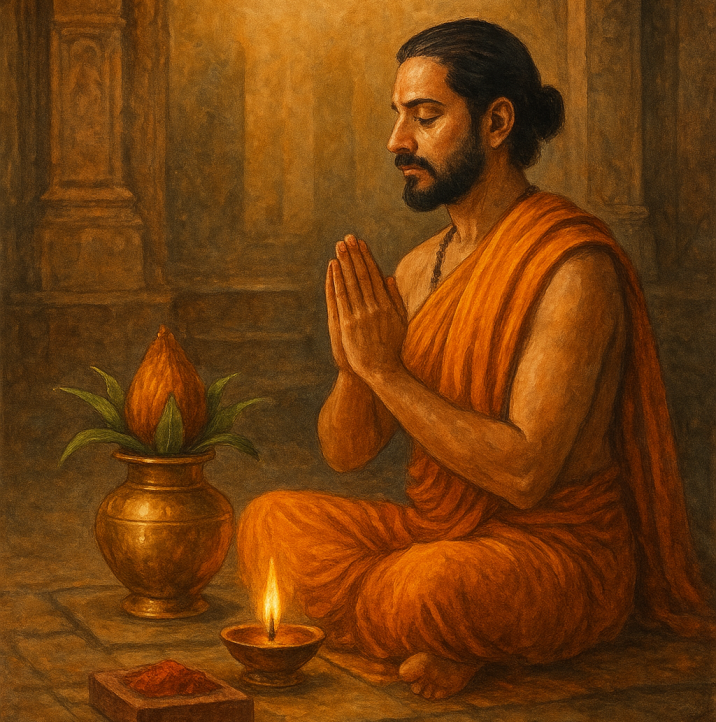
Sankalpa in Hinduism is a vow or resolution taken before rituals, puja, or meditation. It is the act of declaring one’s intention with full awareness. Rooted in Sanskrit, ‘san’ means truth, and ‘kalpa’ means vow, making sankalpa a sacred commitment to focus the mind and spirit.
Meaning of Sankalpa
Sankalpa is a clear statement of purpose. It is spoken before rituals to affirm what is being done, when, where, and why. This creates discipline and aligns thought with action.
Significance in Hindu Mythology
Every major Hindu ritual begins with sankalpa. The priest recites a traditional declaration, mentioning cosmic time (yuga, kalpa), deity names, devotee details such as names and Gotra, and the purpose of the act while reciting the mantra. Offerings like rice, flowers, and water symbolize purity and intent.
This practice reflects a sacred contract between the devotee and the Divine, inviting blessings for the success of the ritual.
Spiritual and Psychological Benefits
- Focus and Clarity: Sankalpa trains the mind to stay anchored in intention, removing distractions.
- Inner Discipline: Taking a vow builds commitment and self-control, guiding both ritual and daily life.
- Transformation: In practices like Yoga Nidra, sankalpa is used as a repeated affirmation to reprogram thought patterns, encourage healing, and nurture positive change.
- Connection to the Divine: Declaring sankalpa during rituals creates a sense of sacred alignment, helping devotees feel part of something eternal.

AI-generated image created with Google Gemini, January 20, 2026
Sankalpa is not limited to rituals. It can be practiced daily to set personal goals with honesty and clarity. Whether for health, discipline, or spiritual growth, sankalpa acts as a guiding force.
Embrace the practice of sankalpa. Set your vow with clarity, honor tradition, and allow your intent to guide you toward balance and inner strength.
Image Credit: AI-generated image created with ChatGPT, November 02, 2025.




